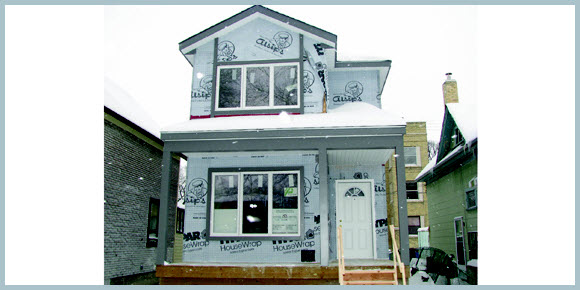Social capital: It may not always be the first thing that comes to mind when buying, selling or developing property, but the impacts of considering or neglecting this important principle can have significant long-term effects.
The Organization for Economic Co-operation and Development (OECD) defines social capital as “networks together with shared norms, values and understandings that facilitate co-operation within or among groups.” These “network factors” are important to consider when choosing where to live, build or do business. They can influence one’s sense of safety and security, shape the patronage of businesses or change the resultant character of a design.
Social capital can also influence how plans are received, as existing networks can mobilize to either support or oppose new development. How networks mobilize is often related to perceptions of trust and communication between those who propose changes and those who could be impacted by the change.
For Winnipeg’s Office of Public Engagement, questions of social capital and public trust are at the forefront of our daily work. There is no “one-size-fits-all” solution for questions of development and change. Though there are certain standards that can be set to help create a framework for dialogue. Context matters and neighbourhood context is a primary consideration in all of our projects.
The City of Winnipeg Project Management Manual defines public engagement as “…a process, involving communication and interaction between the city of Winnipeg and its residents that serves to inform and involve the public, and uses public input to make better decisions.”
We conduct processes based on the assertion that public input, sought out through appropriate techniques, is a critical component of informed decision making.
One case of critical trust building is related to residential infill development, which is defined as the provision of new housing in existing neighbourhoods. Infill development integrates new residents and their homes into already established social and physical structures in contrast to greenfield development, where pre-existing physical and social infrastructure are often limited. Because of this, infill can be challenging when residents value their community and may fear that a new development will change their neighbourhood.
Yet, development within existing communities is a key policy objective set out in the OurWinnipeg Complete Communities direction strategy, and navigating these conversations in a meaningful way is essential.
During focus group sessions for the city’s residential infill strategy, we asked developers and community associations about their experiences with public consultation. We heard about the differences in how various infill developments were received by communities, and how a “lack of trust” is often at the heart of conflict regarding new development in existing communities.
This lack of trust exists on different levels. Communities can feel that their needs are not well understood or advocated for and developers can feel a lack of consistency or reliability in how decisions are made about specific infill projects.
We also heard that engagement planning (conversations with residents and stakeholders preceding formalized engagement opportunities) and early notification of development plans go a long way in building community support for development. One developer in particular stated that holding two or three meetings prior to a public hearing process generally alleviates most resident concerns and that voluntary, early consultation had improved all of their development projects.
If we are to develop a residential infill strategy that takes advantage of existing social capital, effective and sincere communication between stakeholders and project proponents is key. We are heartened to see that developers increasingly see value in establishing this sort of dialogue early in the development process, and how increased communication and trust will improve project outcomes for all involved.
The residential infill strategy is currently being developed by the city’s Planning, Property and Development department, and will include two public workshops on Saturday, January 27, from 1 p.m. to 3 p.m. at the University of Winnipeg Commons, and on Wednesday, January 31 from 6:30 to 8:30 p.m. at the Millennium Library (Carol Shields Auditorium).
These workshops will involve participant evaluation of the infill criteria we heard about in the first phase
of engagement. Snacks and refreshments will be provided, and accessible washrooms are available. All members of the public are invited to attend.
For more information on upcoming infill strategy consultations, go to winnipeg.ca/infillstrategy
To learn about current and upcoming engagement opportunities, or to sign up for the city’s public engagement newsletter, visit winnipeg.ca/publicengagement
— Provided by the City of Winnipeg.



